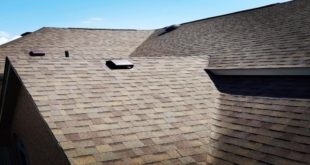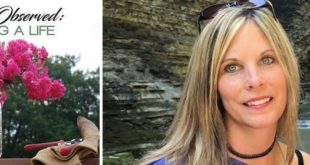For Immediate Release
Local resident making a difference to protect wildlife
Etna, PA– July 24,2015 – National Wildlife Federation (NWF), America’s largest wildlife conservation and education organization, is pleased to recognize that Michael Cook in Etna, PA has successfully created a Certified Wildlife Habitat® through its Garden for Wildlife program. NWF celebrates the efforts of Michael Cook to create a garden space that improves habitat for birds, butterflies, frogs and other wildlife by providing essential elements needed by all wildlife – natural food sources, clean water, cover and places to raise young. Certification also makes your Certified Wildlife Habitat® part of the Million Pollinator Garden Challenge, a national effort to restore critical habitat for pollinators.
“We are so excited to have another passionate wildlife gardener join us and create a Certified Wildlife Habitat. Over the last 40 years, nearly 200,000 wildlife gardeners have joined NWF’s Garden for Wildlife movement and helped restore wildlife habitat right in their own yards and neighborhoods,” said David Mizejewski, naturalist with the National Wildlife Federation. “Whether you garden in a suburban yard, an apartment balcony or a 10-acre farm, a schoolyard or a business park, or anything in between, everyone can create a home for local wildlife. Turning your space into a Certified Wildlife Habitat is fun, easy and makes a big difference for neighborhood wildlife,” he added.
As an environmentalist who is a longtime lover of bird watching I was honored to have my garden certified by the National Wildlife Federation, said Michael Cook.
The birds are usually fed twice a day because of the amount of food consumed on a daily basis. On the menu are suet cakes, black sunflower seeds, Sommers Premium bird mix and Niger thistle seed. The birds are fed all year round. I believe it is important to feed the birds’ high quality food that I purchase from either Best Feeds and Garden Center (a great resource for all gardening needs) or Beechwood Farms a local chapter of the National Audubon Society.
The Cooks Garden habitat is enhanced by wild sunflower plants that have grown all around the birdfeeders. These sunflower plants grew organically from the seeds that fell out of the feeders. The habitat is supported by two composting systems—a double chamber rolling composter for the grass and leaves and a worm farm for the food scraps.
Mr. Cook uses a rain barrel to water the vegetables, flowers, bird bath and worm farm.
NWF’s Garden for Wildlife program encourages responsible gardening that helps pollinators and other wildlife thrive. It encourages planting with native species like milkweed and discouraging chemical pesticide use. With nearly 200,000 locations and growing, NWF’s Certified Wildlife Habitats and Community Wildlife Habitats recognize individuals, schools, groups and whole communities committed to providing habitat for wildlife, including pollinators. Each of the nearly 200,000 certified locations provides food, water, cover and places to raise young. This makes yards, schools, businesses, places of worship, campuses, parks, farms and other community-based landscapes into wildlife sanctuaries. For more information on gardening for wildlife and details on how an entire community can become certified, visit www.nwf.org/habitat or call 1-800-822-9919.
For more National Wildlife Federation news, visit: www.nwf.org/news.
National Wildlife Federation is America’s largest conservation organization, inspiring Americans to protect wildlife for our children’s future.
# # #
Contact:
Linda Argueta
National Wildlife Federation
202-797-6662
ArguetaL@nwf.org


